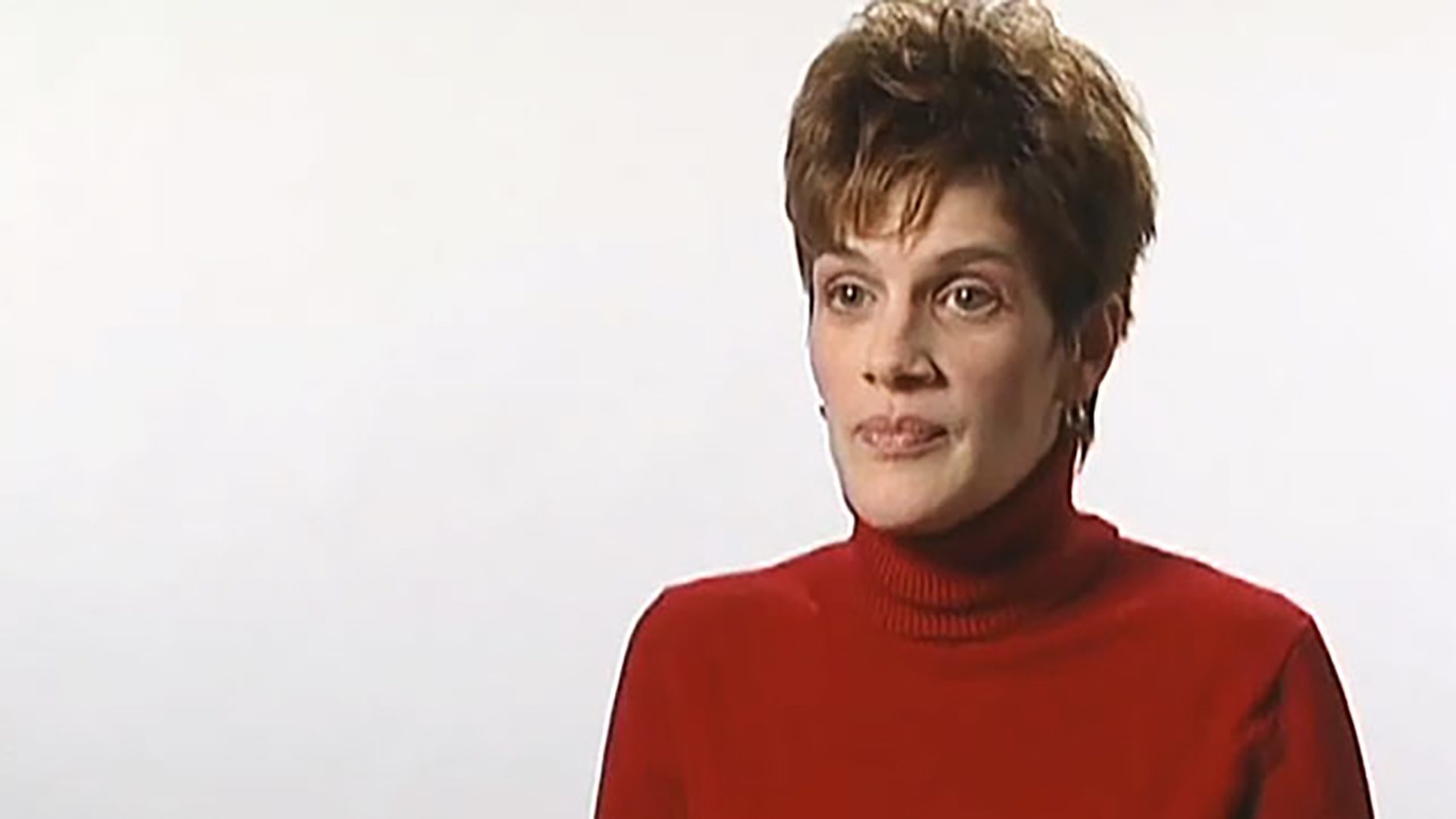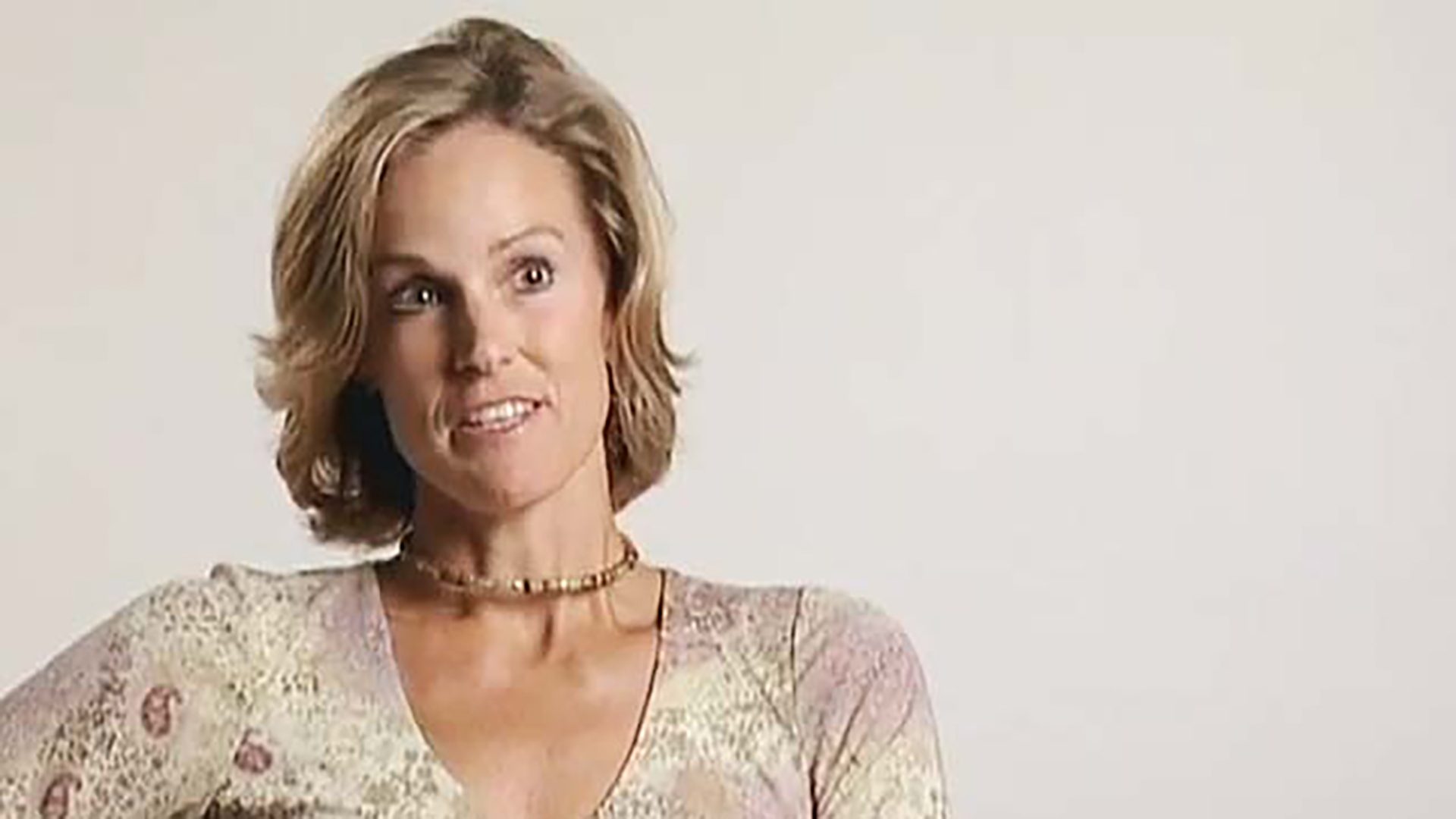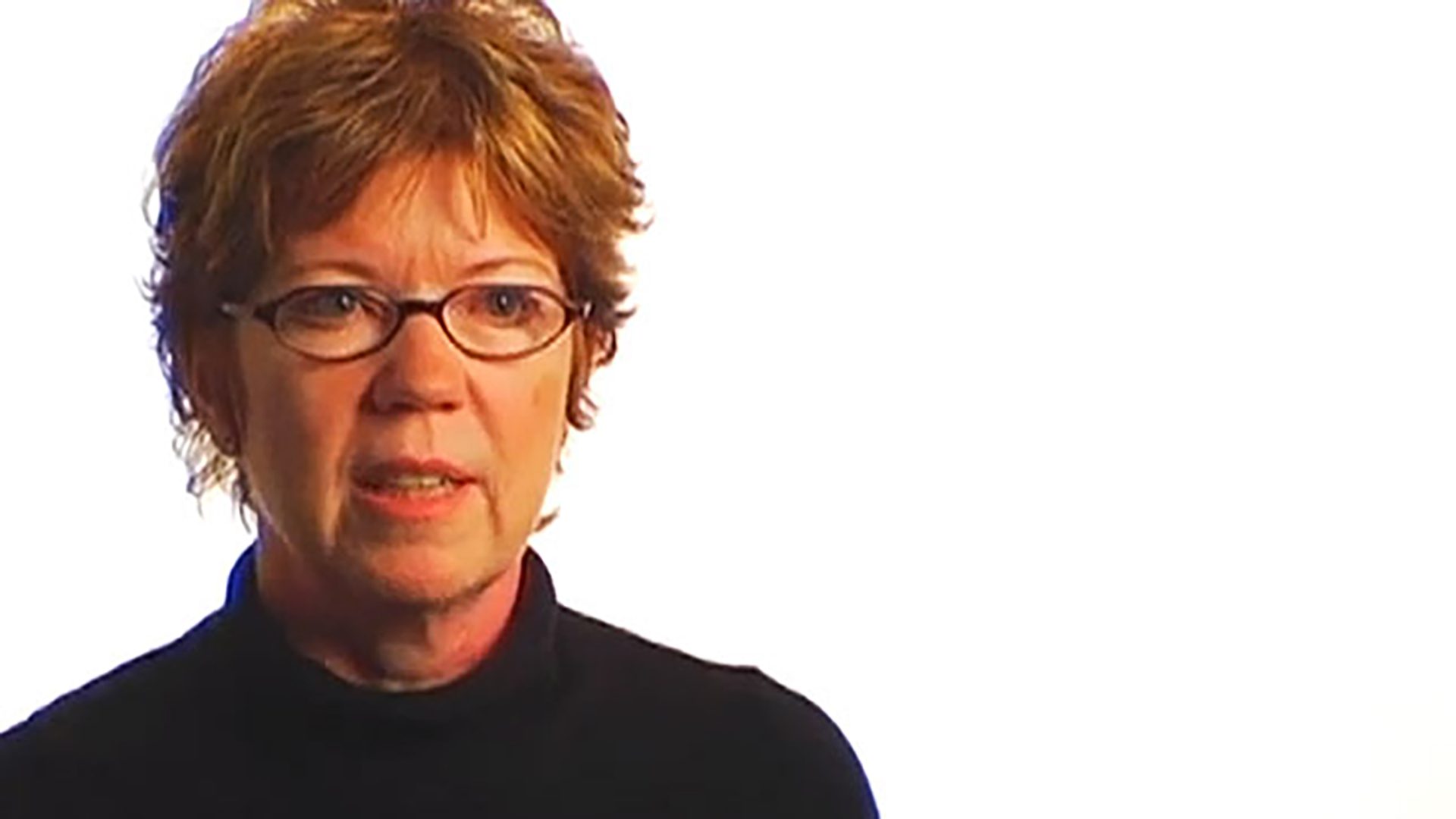Survivor Interview – Maria S.
Maria is a survivor of non-Hodgkin’s lymphoma and acute lymphocytic leukemia. She talks about communicating with her husband, the aftereffects of cancer treatment, and anger.

I became a cancer survivor on November 6, 1977, when I was diagnosed with non-Hodgkin’s lymphoma. I was at Children’s Hospital in Philadelphia, and they woke me up to tell me I had lymphoma. They asked me if I had any questions, and I just asked them if I could go back to sleep.
I went through approximately four years of treatment. After that, I had a cake, celebrated my last treatment, came home and fell asleep. Usually, every time I had a treatment, I would go right to sleep and then get up and throw up. But this time was different because when I got up to throw up, I couldn’t walk. I was diagnosed a month later with ALL.
The second diagnosis was the worst. I was angry. I cursed unbelievably, even though I was not raised to talk like that. I was very mad. Not at anybody in particular, but just that it came back. All the while, I had been joking about it saying it came back. Maybe deep down I probably knew it came back and that’s why I joked about it.
I went through a year of radiation and chemotherapy for the cancer in my leg, and life after that was great. I worked as a travel agent, so I traveled a lot. Then I started to wind down with traveling, and I met my husband in January of 1987. In May of 1987, I discovered the lump in my breast. I got right on the phone to my oncologist and told her, “I want something done right away, so what do I do?” She told me exactly what to do, and I followed through.
I had a lumpectomy. The doctor came in the recovery room and sat down. He said, “It’s very unusual to find leukemia in the breast.” And I said, “Well, I’m very unusual. So now what you have to do is call my oncologist. This is her name. This is her number. You have to speak to her immediately. Today.” So, I told him what to do, too.
One thing with Children’s Hospital, when I was diagnosed at 14, they always treated me like I was a peer, not a child. They would let me look at my bloodwork under a microscope. They would explain everything to me. So, I felt as though when I spoke to them and if I refused to have a test done, I wasn’t doing it out of disrespect. We were a team, and I was allowed to speak that way. They trained me. They’re my guardian angels on earth.
I feel as though I have to be my own doctor. Whatever test I need, I tell my doctor, “I used to have this done. I’d like to have it done again.” I started getting mammograms much younger. I just went to my doctor and said, “I’m going to start having a mammogram every year. By the way, I used to have dense breasts. I want an ultrasound, too.” Usually, they’re in agreement with me. You have to be your own watch-out person.
I don’t ever get worried about bad news, because I figure if something bad is gonna happen to me, it’s gonna happen. There’s no sense in thinking about the future. You have to live in the present. My faith is what carries me all the way. There’s nothing to be afraid of. I’ve been in the face of danger and death. I’ve seen the eye, but I’ve never had to cross over. I’ve just prepared myself to die. My husband’s the worrier. So if anything happens, he can worry and I’ll just live.
My husband met me when I was 17 years old. We started going out with each other seven years later, but he knew I had been sick. I was already damaged goods. I was told that it was medically impossible to have children. I told him, “Look, you can walk, because I know you want children. I do, too, but I’m not giving you any children, because there’s nothing to give.” He was able to accept that.
When I got sick again, though, that was hard for him. It wasn’t hard for him to accept me. He went through a rough time, and he worried constantly. I told him, “Look, I’m not a blender. I don’t come with a lifetime warranty or a guarantee. But neither do you. What’s to say you can’t walk across the street and get hit by a car and die? So, that’s the way it is.”
We got married in 1991. Four months later, I wasn’t feeling well. I had fatigue and all the symptoms I had with my cancer. So, when I went for my checkup in November, I just was waiting for them to tell me what kind of cancer I had. I went for bloodwork and had a stress test, but they told me to go back to my oncologist after my cardiac ultrasound. I went back, and she said, “Congratulations, Mommy.” I was floored. They kept me in the hospital for an hour just so I could calm down. I had four pregnancies, and in between my first and second, I lost a child, so I have three children: an 11-year-old, a seven-year-old, and one who’s almost two.
I used to worry about the two older ones. I used to have them tested every year, just a CBC, for leukemia. I haven’t done that with my youngest. I have stem cells that are stored from her umbilical cord. So now I think I’m a little lazier about having them tested, because I figure we have her stem cells stored. To be honest, I never actually thought about getting stem cells from the first two. With my last pregnancy, I got a flier in the mail a week before I delivered her. I think it was a great idea. If we never use it, that’s even better, but I’m glad we did it.
I have a lot of specialists that I go to: a gynecologist, a cardiologist, and a neurologist. I’m also following up with the Living Well After Cancer Program. I have fatigue, but I do have three children, too! I also have post-sub-capsular cataracts; I believe from the radiation that was given to my head the first time I was sick. They’re not ripe yet, so I can’t have them removed. Then I have a problem with the pumping function of my heart, I believe from one of the chemotherapies. I just keep on top of myself, because I don’t only want to live for me. I want to live for my husband and children, too.
When I was first diagnosed, I was feeling sorry for myself, and my mother said to me, “There are people that are worse off than you.” And I thought, “Oh, my God, she doesn’t care.” Then I thought, “No, she does care. She just doesn’t want me to feel sorry for myself.” A priest told me, “We can all have pity parties, but how many people will really come to them?” So, I learned I could feel sorry for myself for a day or two, and that was allowable, but after that, you got to snap out of it and go on, because nobody’s gonna want to know you.
Every night in our family, we pray for people that are sick. A lot of the people had cancer and died. Some are struggling. Some are fighting hard and getting well. So there’s good news and bad news, but that’s a part of life, and I won’t shield my children from it. I’m only 40. I’m not ready to check out, but that doesn’t mean I can’t die anytime. I want my kids to be prepared.
One time in my life, I felt guilty about someone who died. I felt a little bad that I was doing well and the young boy down the street passed away. I wanted to go to his viewing and funeral, and my sister-in-law told me, “Oh, they would feel so bad if you went.” So then I felt guiltier, and I never went. But my oncologist said, “They loved you. They would have wanted you there.” I realized I made everybody else around me dictate how I was gonna feel, and I just didn’t stand up. We’re allowed to be weak a little bit, some of the time. Not all of the time, though.
With my first cancer, I had two tumors on my brain and one in my sinuses. As a result of the radiation and chemotherapy, it left scar tissue. If I don’t take Phenobarbital regularly, I have seizures. I will take it daily for the rest of my life. When I was pregnant with my first child, I had seizures because, as I was getting bigger, I needed more medication. We corrected that problem. The second and third time I was pregnant, we just looked at my weight and upped the dose.
Being here, being able to help someone else, sharing my story, and being thankful and grateful that I am here. Those are the things that are survivorship.
I’m Maria Schiavo. I’m 40 years old. I’m a 26-year cancer survivor of non-Hodgkin’s lymphoma and acute lymphocytic leukemia.

